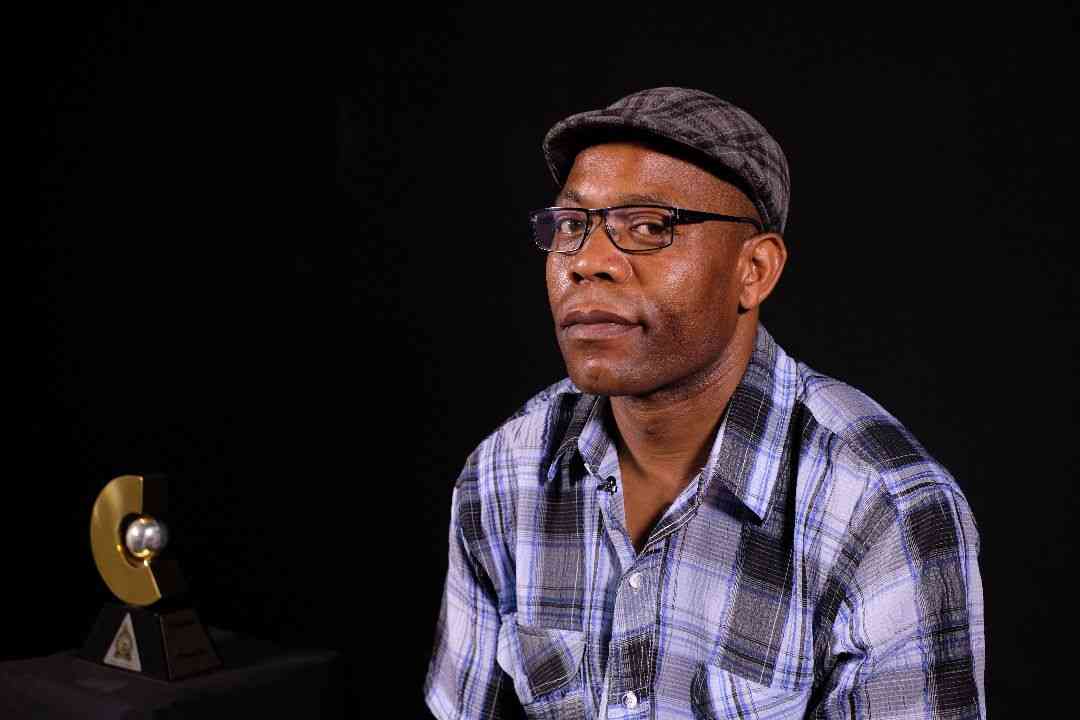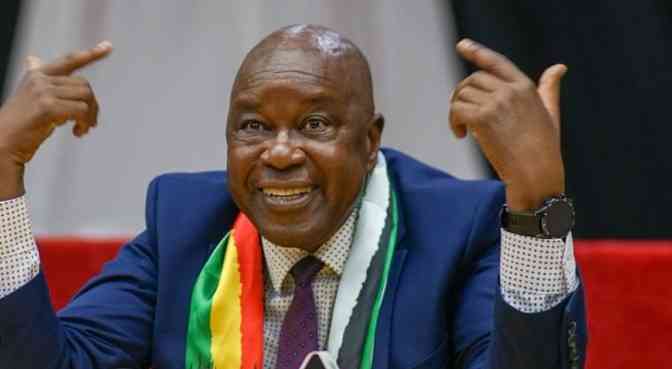
Am I the only crazy one to be still talking about Covid-19 when most people seem to have forgotten about this pandemic?
I know that the music sector has been affected by Covid-19 one way or the other even though things seem to be opening up now.
With that in mind, we have to find ways of how to solve the resilient recovery of the music sector.
The music business is one of the sectors hit the hardest by the Covid-19 pandemic and will be one of the last sectors to come out of it.
The crisis has highlighted and accelerated many challenges which the sector had already been facing.
At the same time, it has also highlighted the importance of music for individuals and society as a whole.
Music has demonstrated its power to unite and to connect people.
Then came the Covid-19 crisis where musicians were not allowed to stage concerts with more than 50 people. That was a disaster. Musicians sometimes would choose to perform in small village areas which were not manned by the police with the hope of getting huge crowds and, therefore, making a bit of money.
- Young entrepreneur dreams big
- Chibuku NeShamwari holds onto ethos of culture
- Health talk: Be wary of measles, its a deadly disease
- Macheso, Dhewa inspired me: Chinembiri
Keep Reading
Even for small bands, touring was a minefield before Covid-19.
Between 2020 and 2022, with the Covid-19 pandemic at its peak, people would still gather at small clubs even in mining compounds to listen and dance to music in small groups while enjoying their favourite booze.
However, with all the Covid-19 restrictions such as social distance, wearing of masks and avoiding of crowded places, the pandemic just threw a few thousand more mines onto the field.
Anyone within spitting distance of live music over the past two years — from road-warrior musicians to anxious concertgoers and every behind-the-scenes toiler in between — has been plenty aware of the precariousness surrounding music concerts in general.
Ever since “things opened up” again (was anything ever really closed to begin with), show goers and entertainers alike have practically grown numb to intermittent waves of gig cancellations. In the past, before Covid-19, big artistes such as Jah Prayzah and Winky D never bothered to take their acts to small towns such as Kadoma or even Kwekwe.
These were left for the smaller groups. But now the effects of Covid- 19 are being felt as it is now difficult for big artistes to woo back the crowds they took for granted in 2019 or before that.
In 2020, the “Best of Both Worlds Concert’’ in Harare which was meant to feature Jah Prayzah and Winky D, was cancelled at the last minute due to Covid-19 restrictions.
The gig was postponed at the 11th hour. Show-goers were left dumbfounded after they were told the event had been cancelled.
This year, Jah Prayzah has had several concerts cancelled in both Zimbabwe and South Africa for a variety of reasons which include poor sound, the weather, Covid-19 restrictions and lack of proper preparation on the part of promoters.
In the past, before the Covid-19 pandemic, a big artiste such as Jah Prayzah would not bother with small venues such as those in Kadoma or even Gweru and Mutare as he was too busy either by being over-booked in Harare or abroad.
With the easing of the Covid-19 regulations this year, the big bands in Zimbabwe are now trying to woo their old crowds back, but this has not been easy as the music fans who used to attend these concerts had built up alternative ways of listening to music and had also found new ways of enjoying themselves.
This, together with economic hardships, has been one of the main factors dissuading fans from attending concerts now.
Poor attendance at shows has riled many a musician especially when a band travels hundreds of kilometres to a venue where their gig has been advertised and end up not performing due to poor logistics in the organisation by the show promoters.
This, I am told, is what happened at the Jah Prayzah show in Gweru on September 30. Mbazo Entertainment, the show promoters, are said to have failed to provide an adequate P.A. system and Jah Prayzah decided to cancel his performance.
There were hundreds of fans at the venue but unfortunately Jah Prayzah’s performance did not take place.
To many fans who had come out to have a good time, the news initially resembled a drop in an increasingly miserable and disappointment-filled bucket. But Jah Prayzah’s statement explaining the cancelled performance gestured to even tougher struggles for touring artistes on the horizon.
The statement highlighted that the stage, which was set up by the promoter, was not the one for a JP performance as it was too small for his big band and that the sound system was poor, making it unsuitable for him to deliver.
Two opening acts, Dadza D and Poptain had performed to an inaudible sound system which made Jah Prayzah come to the decision that he would not perform with such an inadequate public address system.
“The public address system was way out of the spec range we agreed as the music lovers had difficulties with audibility of the artistes who were performing on stage. The performance of a band as large as ours with such equipment was not possible.” Jah Prayzah said.
For casual music fans unaware of the music industry’s financial, perpetually rusty nuts and bolts, the news that Jah Prayzah would not perform had to have been shocking.
They started throwing missiles and empty beer bottles on stage.
Such skirmishes over obvious truths — specifically, that the music industry has failed to provide a viable and safe method for artistes to perform live without bringing themselves into disrepute — are frustrating but, when taking a wide-scale view of the general societal landscape, understandable.
There were, however, a few critics who blamed Jah Prayzah for not performing. I suspect that these are the people who threw missiles on stage.
However, shaming artistes when they advocate for themselves situations which prohibit them from performing or for better fees is one of the worst socially normalised things in the industry.
Paradoxically, one professional ritual which Jah Prayzah went through was to publicly explain to his audiences the reason behind his non-performance. At least this had nothing to do with the increasingly untenable situation of post-Covidtouring life in general.
Tensions across the general fabric of society have been running high for a few years now, and the pandemic only further laid bare the common truth that many people are struggling when it comes to health issues.
Amidst the misery of the pandemic’s peak, there were hopes that the effective shutdown of the touring industry would allow for the music business itself to work out the myriad issues that musicians face while trying to make a living on the road.
That obviously didn’t happen, and as artistes continue to struggle in all echelons of the touring ecosystem, there’s a general questioning as to whether all of this is even worth it.
The easing of Covid-19 regulations has not made it easy for struggling musicians. Many working people were retrenched from their jobs between 2020 and 2022. This brought about loss of income for these people who used to have spare cash to attend concerts.
One music punter, Eunice Samuriwo, when asked about how Covid-19 is affecting attendance at music concerts, had this to say:
“People, especially Zimbabwe’s youth, miss going out, partying and having a good time, but unfortunately most of them are unemployed.
Therefore, they do not have the cash to do all these things. Besides, a lockdown that started in March 2020 effectively shut down all concerts. We had nowhere to go except staying indoors.
Even as restrictions eased somewhat starting in May this year, many people felt cooped up. Now we are at a loss as to know where our country is headed as we have no money to enjoy these things again.”
In a related interview, an established music producer Mono Mukundu, who once worked as Dr Oliver Mtukudzi’s lead guitarist and who is also the founder and director of Monolio Studios said over the past 24 months there is no work for him.
“Music studio business has gone down. The ripple effect of Covid-19 is that artistes are not getting work. They are unable to afford to pay for the studio,” he said.
Apart from suffering from economic recession, the lack of alternatives to selling their creative work is also hitting them below the belt.
While few artistes have been able to earn by selling their songs online, the majority of them do not even know how to go about this method of conducting business.
Just a few hours after songs or an album is released; they are pirated and sold in defiance of copyright laws.
“Zimbabweans haven’t warmed up yet to buying music online, so right now there is nothing to write home about. Piracy is killing our industry,” said Mukundu.
Yes, indeed, Covid-19 is affecting the whole music industry.
Feedback: [email protected]











